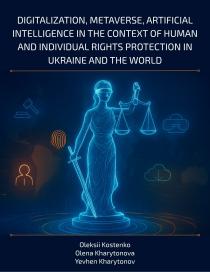ISSUE OF PRIVACY IN AI ERA: AUTOMATED DECISION-MAKING AND REMOTE IDENTIFICATION
Synopsis
In order to attain human rights and participate in social and political life, it is necessary to be a part of the network and fully utilize the latest technologies. On the web, a natural person is transformed into a digital profile or digital identity that is represented by digital projection. Furthermore, the importance and significance of artificial intelligence programs, known as a “black box”, which analyze the actions of subjects in the network, learn, and are nearly capable of making autonomous decisions, is on the rise.
The “black box” helps on making decisions with individual in the following matters: assessing credit approval, employment, pre-trial investigation decisions, preventive detention through remote biometric identification or wiretapping, and other similar matters. There is a concern about the consequences of potential delegating decision-making power to the automated system. Nowadays, the final decision is made by any subject, even if automated systems are involved in decision analysis. Such analyses are conducted using all available data collected in the network, including a person’s profile (set of personal data). Moreover, modern biometric identification technologies, which can be used to identify not only the face, but also the manner of walking and movement, can be used to identify people by cameras.
Furthermore, the excessive aggregation and automated processing of personal data, violation of laws regarding cross-border data transfers from the EU to the USA, and frequent hacker attacks have resulted in concerns about privacy interference, surveillance, and wiretapping for every person in society. Edward Snowden and Julian Assange's public disclosure and prosecution, along with the scandals related to personal data manipulation in the United States and Brexit, are of public concern. In addition, the analysis of big data for the development of machine learning raises the issue of establishing legal guarantees for the protection of individual rights to privacy due to the lack of transparency in the use of automated decision-making systems and the application of such systems without human intervention.
The use of automated decision-making systems in the government and private sector is based on the aim of ensuring national security, which includes prevention, detection, investigation of crimes, predictive analysis of offenses, extend the quality of public services and other related matters. Commercial organizations use automated system technologies (transport organizations, banks, supermarkets, cafes) to ensure security, facilitate access to financial products and increase sales.
The latest technologies and human interconnections in a socio-technical network have resulted in a society becoming more interconnected and influenced by each other. The above evidence indicates that there are all the necessary factors to establish a dictatorship, just like the one described by J. Orwell and other dystopian authors.
All of the above testifies to the relevance of studying human rights problems in the context of making significant decisions with assistance of automated systems and the remote biometric identification, the constant aggregation and processing of personal data to ensure national security, the development of technologies, and the search for a balance between privacy and security in such circumstances.










